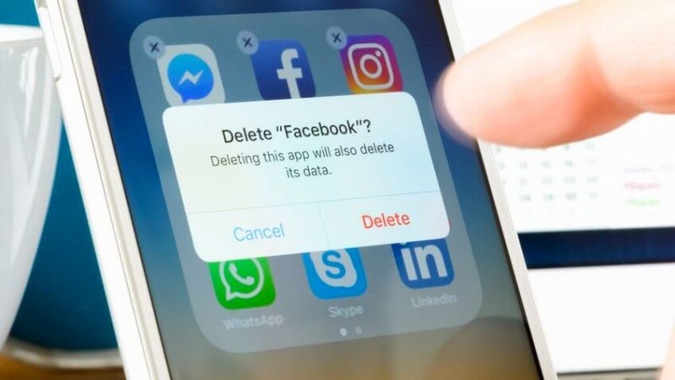21 Time Management Hacks Successful People Do Daily Learn these secrets to managing your time effectively.
By GOBankingRates •

This story originally appeared on GOBankingRates

No matter what your industry, passion or trade is, your success largely will be determined by how well you stay on top of your to-do list. Time management always has been an ingredient for success in life and at work, but today's mobile world puts an even bigger premium on the skill.
Related: 11 Effective Ways to Trick Yourself Into Saving Money
Click through and learn what the world's most successful people do to stay organized.
(By Andrea Lisa)
 Shutterstock
ShutterstockEliminate waste
In a resource titled "The Ultimate Guide to Time Management," life and business strategist and best-selling author Tony Robbins advised his legions of loyal followers to treat their time the same way they treat their money -- as a critical and finite resource that must be conserved by eliminating waste.
He suggested converting wasted time into productive time by repurposing time-management dead zones. For example, if you value reading but don't have the time, listen to audiobooks during your daily commute or by reading on the train to work. Or, if you have a million podcasts you'd like to explore but no time to explore them, listen while you exercise.
 Shutterstock
ShutterstockFocus on the ‘5’
Successful people tend to be experts at isolating the tasks that are truly critical to success -- five tasks, specifically, is a commonly cited number. According to an article in Investment News, Berkshire Hathaway investing guru Warren Buffett was asked by his pilot for advice on career success.
Buffett told the pilot to make a list of 25 goals he wanted to achieve in the coming year. Then he told him to circle the top five goals, erase the other 20 and never think of them again.
 vgajic / Getty Images
vgajic / Getty ImagesIdentify your daily knockouts
Marcus Lemonis, entrepreneur and star of CNBC's "The Profit," also takes on five tasks at a time. But unlike Buffett, those tasks aren't a year away on the horizon. He relies on a daily five-task "knockout list" that outlines the five things he absolutely must do every single day. He writes the list out in the morning -- not the night before -- and commits to tackling those five items in the next 24 hours no matter what.
 Shutterstock
ShutterstockSchedule dead space
Your calendar should be filled with plenty of blank space -- or so say two of the richest people in the world. In a 2017 interview, Bill Gates and Warren Buffett shared their secrets of success and time management.
Related: 17 Motivational Leaders You Need to Follow on LinkedIn
Gates -- who admitted to being overscheduled -- said he now believes that it's crucial to schedule dead space into your daily planner. By controlling your time and resisting the urge to pack every open slot with a task, you'll have the flexibility to adapt throughout the day and week as things come up and circumstances evolve. Perhaps more importantly, you'll be able to use those gaps to spend a little time each day focusing on your passions, which tend to get pushed to the side for people with packed schedules.
As summarized by Buffett, "I can buy anything I want, basically, but I can't buy more time."
 Shutterstock
ShutterstockTake vacations
Time off might seem counterintuitive to go-getters who are shooting for the stars, but significant scientific research -- as well as the insistence of some of the world's most successful people -- suggests that periodic vacations make people more productive.
A recent study by Project: Time Off revealed that more than half of all American workers leave some vacation days on the books every year. The study showed that states where employees vacation the most have lower work stress, increased productivity and better overall economic output.
Many of the world's greatest success stories validate the study's findings and insist that vacations — time physically away and truly unplugged from their work -- helps them focus, manage their time and be more productive. According to CNBC, Oprah Winfrey, Richard Branson, Netflix CEO Reed Hastings and former eBay CEO John Donahoe all consider vacations to be a time-management hack.
 Deagreez / iStock.com
Deagreez / iStock.comTake scheduled breaks
Don't make the mistake of thinking that you can increase productivity by staying connected to your work throughout the workday. According to Tina Willis, owner of Tina Willis Law, a boutique law firm in Orlando, Fla., getting away is the key to being your best you during the time that you are working.
"If I'm not in court or attending a deposition or a hearing, I take a midmorning break each day to go for a run or exercise, which helps me stay on track mentally throughout the day," Willis said.
"In other words, I work in the morning, then go for a run, then come back and get back to work. The run helps me stay focused when I am working, which helps me make the most of that time."
 amesy / Getty Images
amesy / Getty ImagesIgnore social media
For Willis, social media can be both a useful tool for work and a time-leeching distraction. The key, she says, is going to it instead of letting it come to you.
"To prevent myself from wasting time," Willis said, "I started by deleting any time-wasting apps from my phone, such as Facebook, and turning off notifications for anything that wasn't essential to my work and life."
By eliminating the perpetual bombardment of updates from social networks, news apps and shopping sites, Willis can get the most out of her technology without giving it the chance to overwhelm or distract her throughout the day. For those whose willpower isn't up to the task, Willis recommends an app called Cold Turkey to set blocks and limit access.
 Shutterstock
ShutterstockDivide up your day
Successful people tend to think in the long term, yet they often manage their time by the minute, not by hours, days or weeks. Elon Musk is no different. Between his SpaceX and Tesla companies, the visionary entrepreneur is known to put in 100-hour weeks -- 85 hours is a short week. That's a whole heap of time to manage, and Musk does it by carving his time up into five-minute slots.
By breaking his day into tiny segments, Musk can focus on the task at hand -- and only the task at hand. Even meals are confined to 300-second blocks. This allows Musk to avoid being overwhelmed by the long game and instead develop tunnel vision on the moment's most critical must-do tasks.
 Shutterstock
ShutterstockGet up early
Of all the self-help-hacks-from-successful-people articles ever written, it's almost impossible to find a mover or shaker who advises people to sleep in. A 2017 article by USA Today reiterated what many Apple-watchers already know -- Tim Cook, the company's CEO, gets up at 3:45 a.m.
Related: How Arianna Huffington, Richard Branson and Other Leaders Maintain Work-Life Balance
Although that hour is probably considered outrageous even to those who are morning people, the article points out that so many successful people are early risers because not all time is created equal. Getting started as the rest of the world snoozes gives early risers rare and precious uninterrupted time -- and it gives it to them when their minds haven't yet been hammered by interactions and requests that are sure to come down the pipe when the loafers crawl out of bed.
 Rawpixel / iStock.com
Rawpixel / iStock.comWrite it out
Juggling multiple devices that bombard you all day with messages, emails, calls and alerts can give a fractured, scattered, haphazard feel to your workflow and priorities -- none of which helps with time management. Fitness entrepreneur and trainer to the stars Tracy Anderson corrals the frantic pace of her busy life with a unified, visual representation of her obstacles, goals, challenges and plans. This can take many forms, but for her, it's a simple notebook that she referred to in an article with CNBC as her "brain dump."
 Rawpixel / iStock.com
Rawpixel / iStock.comMap out your day
Former Google career coach and job strategist Jenny Blake said she visually centralizes the fragments of her work and life with mind maps, which use spokes to connect a central idea to related concepts or tasks. This gives her the opportunity to physically see a snapshot of her day, year or decade while mapping the best way to reach her goals both near and distant.
 PeopleImages / Getty Images
PeopleImages / Getty ImagesProtect the first hour of your day
Elizabeth Grace Saunders is the founder and CEO of Real Life E Time Coaching & Speaking, as well as a time-management coach, speaker and bestselling author of three books on time management.
She believes that the critical first hour after you wake sets the tone of your entire day -- and you must defend it at all costs.
"I find that it helps immensely to not have meetings to start my day," Saunders said. "During this first hour, I take time to organize myself, including completing my daily plan, getting an email in order and taking care of other small, time-sensitive tasks. This allows me to come at the rest of the day from a place of clarity and strength. I feel prepared for my meetings and know which larger tasks are most important for the day."
 NicoElNino / iStock.com
NicoElNino / iStock.comSet aside project days
According to Saunders, you can help yourself by dedicating an entire day to stepping outside of the day-to-day busy work required to actually get things done.
"I have one day a week where I don't have coaching calls," she said. "For me, Wednesdays work best. During those days, I also put up an "away from email" message. Those are days to work on project work and also to do networking or marketing meetings that might otherwise not easily fit into my schedule. This is a time to work on my business instead of in my business."
 Georgijevic / Getty Images
Georgijevic / Getty ImagesFront-load your Monday
Saunders has developed a unique and effective way to manage the snowball effect of unchecked to-do list items that find a way to bleed into the following days.
Related: 15 Ways to Feel More Energized at Work
"I taper down my planned work from Monday to Friday," she said. "By Friday, I have fewer new planned activities, so I have space to wrap up what spilled over from earlier in the week."
 valentinrussanov / Getty Images
valentinrussanov / Getty ImagesDelegate weaknesses
Richard Gutkowski is a Ph.D. and author whose two-book series Debt is a Four-Letter Word -- But it Need Not Be! guides young adults to financial responsibility. During the process of getting published, he encountered roadblocks in social media and other new technology that he needed to reach the millennials his books are designed to help.
"Being well into senior age," he said, "I faced overwhelming learning curves, upkeep, maintenance time and other demands -- and I lacked passion for it."
Instead of attempting to manage the task himself, he found an easy and relatively cheap solution in hiring a college student who understood the technology and the demographic.
"She develops content for and maintains all applicable social media outlets, produces my newsletter and ghostwrites a weekly blog post based on topics in my books," he said. "In five hours weekly she does what was taking me days and days and days."
 PRImageFactory / iStock.com
PRImageFactory / iStock.comLearn how to say ‘no’
According to the Financial Times, "no is the new yes." Good people naturally want to help others when they can, but every time you agree to take on a task that could be done by someone else, you give away a piece of your time for free. The more you say yes, the busier you get, the less time you have and the more poorly you manage the time you do have.
According to Inc., Warren Buffett once famously said, "The difference between successful people and very successful people is that very successful people say no to almost everything."
 shapecharge / Getty Images
shapecharge / Getty ImagesDon’t try to multitask
"Multitasking" was long a buzzword that applicants wrote on resumes to impress hiring managers. They, unlike the rest of the candidates, could perform several tasks at the same time, which must have made them some kind of time-management deities. Not so much. According to Entrepreneur -- and a bevy of scientific evidence -- humans were designed to focus on the task at hand. Multitasking seldom works, and it's probably not good for you. Inc. reported that Mike Cannon-Brookes, co-founder of Atlassian, summed it up by saying, "Do one thing at once. Stop multitasking!"
 Rawpixel.com / Shutterstock.com
Rawpixel.com / Shutterstock.comCompartmentalize
As the CEO of PepsiCo, Indra Nooyi manages one of the most hectic schedules in the world. One strategy that contributes to her success requires making a strict partition of life/work goals, responsibilities and tasks. According to a 2017 interview in Fortune, Nooyi draws up a list -- in her case a list of 50 to 60 tasks -- split into two columns, one for work and one for personal. No matter how big or small the task, if she doesn't complete it, it carries over to the appropriate column on the next day's list.
 Rawpixel.com / Shutterstock.com
Rawpixel.com / Shutterstock.comManage your inbox
Author Kevin Kruse interviewed 200 of the world's most successful people for his book 15 Secrets Successful People Know About Time Management. A consistent pattern soon emerged. All of them, according to a piece Kruse wrote in Forbes, meticulously managed their email instead of "reacting" to incoming messages as most people do.
Although they all follow their own nuanced approach, many successful people treat emails like any other task: something that must be scheduled, managed and completed as quickly as possible.
 Shutterstock
ShutterstockWrite shorter emails
Kruse, according to Forbes, also said that many industry leaders schedule a handful of sessions -- often three -- per day to check and respond to emails. This way, their days aren't bled dry by the steady drip, drip, drip of incoming messages. He also noticed email brevity is a common theme among the successful.
HootSuite CEO Ryan Holmes, for example, writes brief emails no longer than three sentences. Finally, Kruse also told Forbes that many high achievers seem to share one last email trait: They relentlessly unsubscribe from any unnecessary lists and newsletters.
 Shutterstock
ShutterstockDevelop routines
Looking at the everyday habits of successful people can offer helpful insight into their time-management skills. Successful people across all industries and walks of life have different morning routines, but there is one unifier -- they all seem to have one.
Some read, others pray. Others browse the news, check their email or hang out with their pets. What they do is less important, however, than the fact that they regularly, consistently and ritualistically do the same thing every morning when they wake up. All of them report that their morning routines set the pace for the day and help them visualize and tackle the day's priorities.












